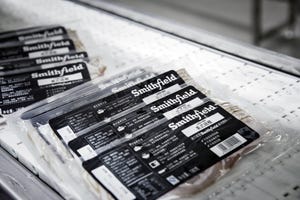Travelers declaring they have been to an ASF-positive country should be diverted to a secondary ag screening.
December 5, 2018

Source: Swine Health Information Center
Potential modes of transmission of African swine fever, and other foreign animal diseases, to the U.S. swine herd are being researched. Contaminated feedstuffs sourced from infected countries are a possible vector, but so are the millions of people traveling internationally each day.
For that reason, the Swine Health Information Center, National Pork Board, National Pork Producers Council and American Association of Swine Veterinarians are reminding travelers to learn and be aware of the proper screening procedures as they return to the United States.
When returning to the United States after visiting a farm or being in contact with animals in a country (or countries) with ASF, or any other FAD, you should declare this information to U.S. Customs and Border Patrol via written form, airport kiosk or verbally. Then you should be diverted for an ag secondary screening by an ag specialist. Unfortunately, reports to pork industry organizations indicate the secondary screening is not taking place routinely as required.
To help the industry understand the scope of this issue and safeguard the health of the U.S. swine herd, the SHIC, NPB, NPPC and the AASV are asking you to report your experience if you are not diverted for the secondary screening when you return to the United States following overseas travel.
SHIC Executive Director Paul Sundberg will be aggregating this information which will be shared on behalf of these four industry organizations with Customs and Border Patrol in an effort to quantify this suspected lapse. Again, if you are not diverted for secondary screening after declaring you have been on a farm or in contact with animals in an ASF or other FAD-positive nation, email the following information to Sundberg:
Your name (optional — please specify if you do not want your name shared)
Country (or countries) visited
Date and time of return
Airline and flight number
Arrival airport
Declaration method (written form, kiosk or verbally)
Customs and Border Patrol employee name, if possible (displayed on right side of shirt)
Any other pertinent circumstances
ASF is endemic in Sardinia, most countries of sub-Saharan Africa and some West African countries. The spread of ASF through Russia, Belgium, the Caucasus, the Baltic states, Poland and China is raising concern in the U.S. pork industry. At present, ASF has never been reported in the United States, Canada, Australia or New Zealand.
This travel protocol affects not just ASF-positive countries but any with active FADs. Review SHIC’s global disease monitoring reports here.
The swine industry appreciates the cooperation from the public as steps are continually implemented designed to reduce the risk of ASF spreading to the U.S. swine herd.
You May Also Like


